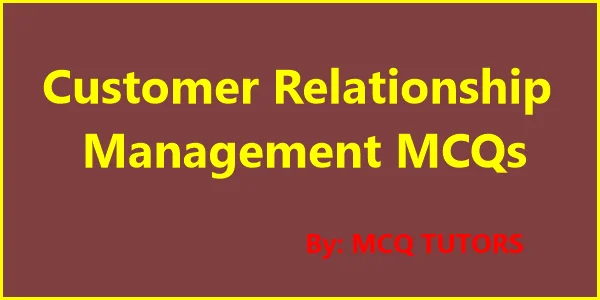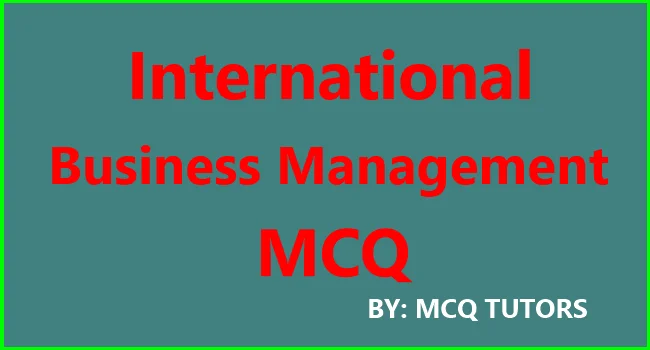MCQ on Business Environment class 12 with Answer pdf Download for the preparation of competitive and academic exams of various schools.
What is Business Environment
Business Environment is a term used to describe the various external factors which have an impact on how businesses operate and make decisions.
It can include economic, political, social, technological, and legal factors that influence the operations of an organization.
The business Environment plays an important role in determining the success or failure of a business as these factors directly affect its performance and objectives.
The economic environment consists of macroeconomic variables such as economic growth rate, inflation rate, interest rates, etc., which influence business operations by affecting consumers’ purchasing power and spending capacity.
Political environment refers to laws and regulations set forth by government bodies that need to be adhered to for the smooth functioning of a business organization.
Social environment includes demographic characteristics such as age group, income distribution, etc., which are important for understanding consumer behavior towards products/services offered by businesses.
MCQ on Business Environment class 12 with Answer
1. In Free Trade Area the focus is usually on eliminating ___ only.
Ans: Tariffs
2. The objective of custom unions is to harmonize trade regulations and to establish common barriers against ___.
Ans: Non-members
3. A common market has all the elements of a customs union and in addition to that, it allows free movement of all ___.
Ans: Factors of production
4. Members of the economic union work as a single nation, as far as ___ policy is concerned.
Ans: Economic
5. The broad mission of the European Union is complete economic and political integration. (True/ False)
Ans: True
6. NAFTA is the Asian counterpart of the European Union. (True/ False)
Ans: False
7. MERCOSUR is a trading bloc in Latin America comprising Brazil, Argentina, Uruguay, and Paraguay. (True/ False)
Ans: True
8. South Asian Preferential Arrangement (SAPTA) was signed by the SAARC members. (True/ False)
Ans: True
9. WTO deals with,
a. Looking after the developed nations.
b. Imposing more and more tariffs among member nations.
c. Providing finance for international trade.
d. Rules of law for international trade.
Ans: d
10. Which of these are agreements under WTO?
a. Agreement of Agriculture
b. Agreement on trade in textile and clothing
c. General Agreement on Trade in Services
d. All of the above
Ans: d
11. The two special rights given to the business by society are ___ and ___.
Ans: potential immorality, limited liability
12. The two types of business obligations are ___ and ___.
Ans: socio-economic obligation, socio-human obligation
13. Each business organization is part of a total ___ and ___ system.
Ans: economic, political
14. For the welfare of his employees, investors, consumers, government, and the public, a businessman should operate his business as a ___.
Ans: trustee
15. Business organizations are not required to include CSR as business objectives to present a good corporate image. (True /False)
Ans: False
16. Donations to all private trusts are exempted from income tax. (True /False)
Ans: False
17. Legal provisions like pollution and environmental laws also direct a company to take up social problems. (True /False)
Ans: True
18. Natural calamities may also sometimes guide businesses to undertake social responsibility. (True/False)
Ans: True
19. Strong company culture also sometimes guides companies to undertake CSR. (True/False)
Ans: True
20. Mantra for marketing has moved from ___ to ___.
Ans: customer satisfaction, customer delight
21. Toyota of Japan has been following the policy of ___.
Ans: customer first
22. Prospects are also called___ customers or ___ customers.
Ans: probable, expected
23. In India 8 hours shift was first introduced by ___ in 1912.
Ans: Tisco
24. A company can adopt a ___ for developmental activities.
Ans: village
25. Most business organizations pay only lip service to corporate social responsibility.
(True /False)
Ans: False
26. Frequent changes in government do not affect the corporate social responsibility of business organizations. (True /False)
Ans: False
27. Crashing of the stock market adversely affects economic activity. (True/False)
Ans: True
28. Trade unions in no way affect the performance of a business. (True/False)
Ans: False
29. Now a day’s CSR is a___ responsibility.
Ans: all–year–round
30. Shakti programme launched by HUL is for ___ women for earning extra income.
Ans: rural
31. The public sector strives to promote redistribution of ___ and ___.
Ans: income, wealth
32. In the non-priority areas ___ sector has proved to be more effective.
Ans: Private
33. Initially only___ PSUs were given Nirvanas status.
Ans: Nine
34. Other profit-making enterprises were given the status of ___.
Ans: Mini- Ratnas
35. Overall control of the PSUs remains with the respective___.
Ans: Ministry
36. A Public Corporation can enter into ___and ___in its own name.
Ans: contracts, acquire property
37. Integral Corporation reduces the ___control of the Government on the company.
Ans: control
38. ___ examines the functions of public sector enterprises.
Ans: committee on public undertakings (CPU)
39. Department of Public Enterprise acts as a ___ to bring out an annual survey.
Ans: repository of data
40. Many socialists advocate a ___ economic system.
Ans: mixed
41. The government retains the control by regulating the ___and___ of the private sector.
Ans: operation, development
42. Third sector of the economy is the ___ sector.
Ans: service
43. The joint sector will help the promotion of a mixed economy. (True /False)
Ans: True
44. The state government cannot start a joint-sector enterprise. (True / False)
Ans: False
45. Joint sector helps broad-based entrepreneurship by encouraging new and small enterprises. (True/ False)
Ans: True
46. Social control of industry cannot be achieved by the Joint sector. (True/False)
Ans: False
47. The state gives legal ___and ___to co-operative sectors.
Ans: concessions, sanctions
48. One of the important objectives of the Co-operative Sector is the eradication of ___ and ___.
Ans: Unemployment, poverty
49. IFFCO is related to the manufacturing of___.
Ans: Fertilizers
50. The salient features of the Indian economy are:
(a) Predominance of Agriculture
(b) Rapid Population Growth and unemployment
(c) Low per capita GDP & capital scarcity
(d) None of the above
(e) a, b & c
Ans: (e) a, b & c
International Marketing Management MCQs
Conclusion
This MCQ on Business Environment has provided an opportunity to test your knowledge of the topic and gain valuable insight into the key points.
Knowing and understanding the business environment is a crucial part of running a successful business and managing resources effectively.
It is also important for businesses to keep up with changing trends in the market and other external factors that can affect their operations. With this knowledge, businesses can be better prepared for any potential challenges or opportunities that may arise.
Thanks for your visit to our website, if you like the post on MCQ on Business Environment class 12, please do share it on social media.




